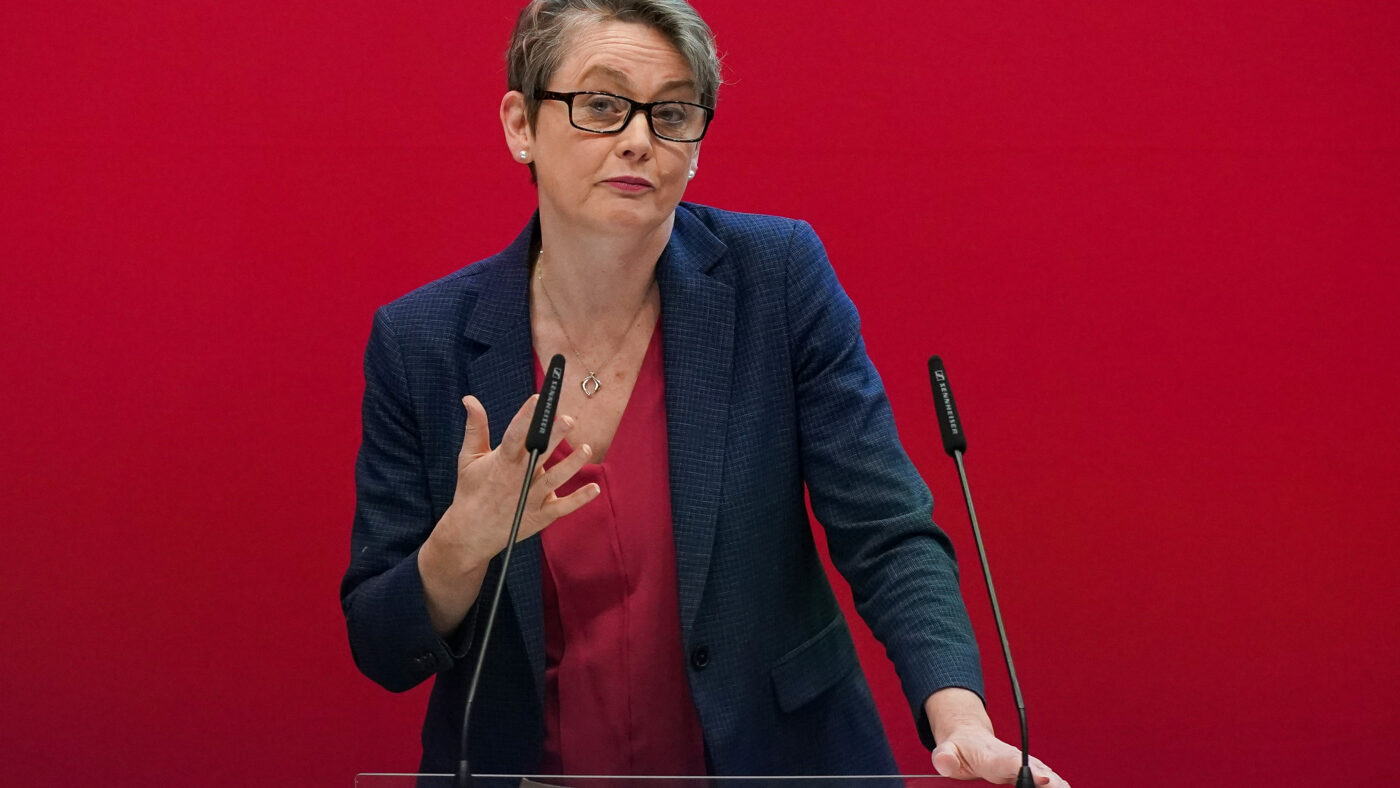Having promised to stop the boats, the Government finds itself in a difficult situation where the number of those crossing the Channel in small boats has increased. Between January and the end of March this year a record 5,000 people have crossed., the largest number to cross in the first quarter of the year since the crossings began in 2018.
The Rwanda scheme to offshore those who arrived illegally was supposed to dissuade them but has rumbled through the courts and Parliament for two years. Even with the passing of the Rwanda bill on Monday, the Prime Minister has had to admit that his spring deadline for flights will be missed, with the ambition now for planes to take off this summer.
All this has left Labour, who traditionally had struggled on the subject of immigration, feeling confident enough to venture into the once-safe pages of The Daily Telegraph to set out their criticisms of the Government and make their own pitch.
The Shadow Home Secretary Yvette Cooper condemned the Rwanda scheme as expensive and failing, with taxpayers facing bills as high as £2m per asylum seeker offshored. Meanwhile, with the Nationality and Borders Act barring recent arrivals from claiming asylum, a backlog has built up where people are trapped in limbo. They can’t claim asylum because of the change in the law but without Rwanda operational they can’t be offshored either. With the opportunities for flights before an election narrowing, most are unlikely to be removed anytime soon.
Instead, Labour say they would put the money for the Rwanda scheme into border security, with counter-terror style powers, international intelligence sharing, and more collaboration with European police to ‘smash the criminal gang networks’. The asylum backlog would be ended with a fast track scheme for safe countries, asylum hotel use would end and a new Returns and Enforcement Unit would remove those with no right to be in Britain.
None of those are necessarily bad things, but are they likely to solve the problem of Channel crossings? I’m not so sure. Although the Government’s payments to Rwanda for their role in the scheme are currently around £370m, the Government is also paying France £500m for an extra 500 officers and a new detention centre in France.
The Government has also signed a deal with Frontex, the EU border agency, to tackle illegal immigration. That includes more intelligence sharing, training, research collaboration, liaison officers and staff being deployed as observers or to assist in cooperation. European police forces have also gone after people smuggling gangs across Europe and recently targeted an Iraqi-Kurdish network facilitating Channel crossings in a major operation, with officers from France, Germany and Belgium involved.
Similarly, the Government has already significantly reduced the asylum-seeker backlog, with four times the decisions made in 2023 as were made in 2022. However, although this was in part due to more staff, it was also because the number of asylum-seekers granted asylum has increased to its highest-ever level. This was in part due to a fast-track scheme for those from Iraq, Iran, Afghanistan, Eritrea, Syria, Yemen and Libya. These groups all had very high rates of asylum granted, not necessarily due to individual merits but because of the alleged danger involved in sending them back home. Just this week, for example, an Eritrean child rapist was allowed to stay due to the difficulties of treating his depression and PTSD if he was removed.
Around two-thirds of all asylum applications in 2023 were successful, although the number of withdrawals increased significantly as well, with 79% being ‘implicit withdrawals’ where the failure to attend an interview was considered a withdrawal. That means they have to leave the asylum hotels but withdrawn asylum seekers are rarely removed to their home countries, with many presenting themselves to local authorities and declaring destitution. Rather than ceasing to be able to access taxpayer-funded accommodation, they are simply accessing it via a different route.
The Government was already able to reduce the large number of Albanians crossing through a deal with the Albanian government. They’ve also signed a new deal with Vietnam, to help deal with the large increase in Vietnamese migrants crossing the Channel this year. Deals like this are impossible to sign with the countries where most asylum seekers come from, however, and a Labour fast track for safe countries would swiftly run out of people from safe countries to be processed. It would also likely be subject to intense scrutiny: the highly successful Detained Fast Track was suspended in 2015 after multiple legal challenges from immigration charities.
More funding for a Returns and Enforcement Unit would be a useful step after major cuts to that area in recent years, but wouldn’t tackle the main problem, which is our human rights law and membership of bodies like the ECHR, which makes enforcing our borders all but impossible. This is a pan-European problem, which is why countries like Italy are also looking at offshoring their asylum process. With most of Labour’s plan to secure our borders already being tried by the Government, it seems unlikely that it would have the impact they claim. Perhaps they should take inspiration in Tony Blair’s old plans on asylum instead.
Click here to subscribe to our daily briefing – the best pieces from CapX and across the web.
CapX depends on the generosity of its readers. If you value what we do, please consider making a donation.


